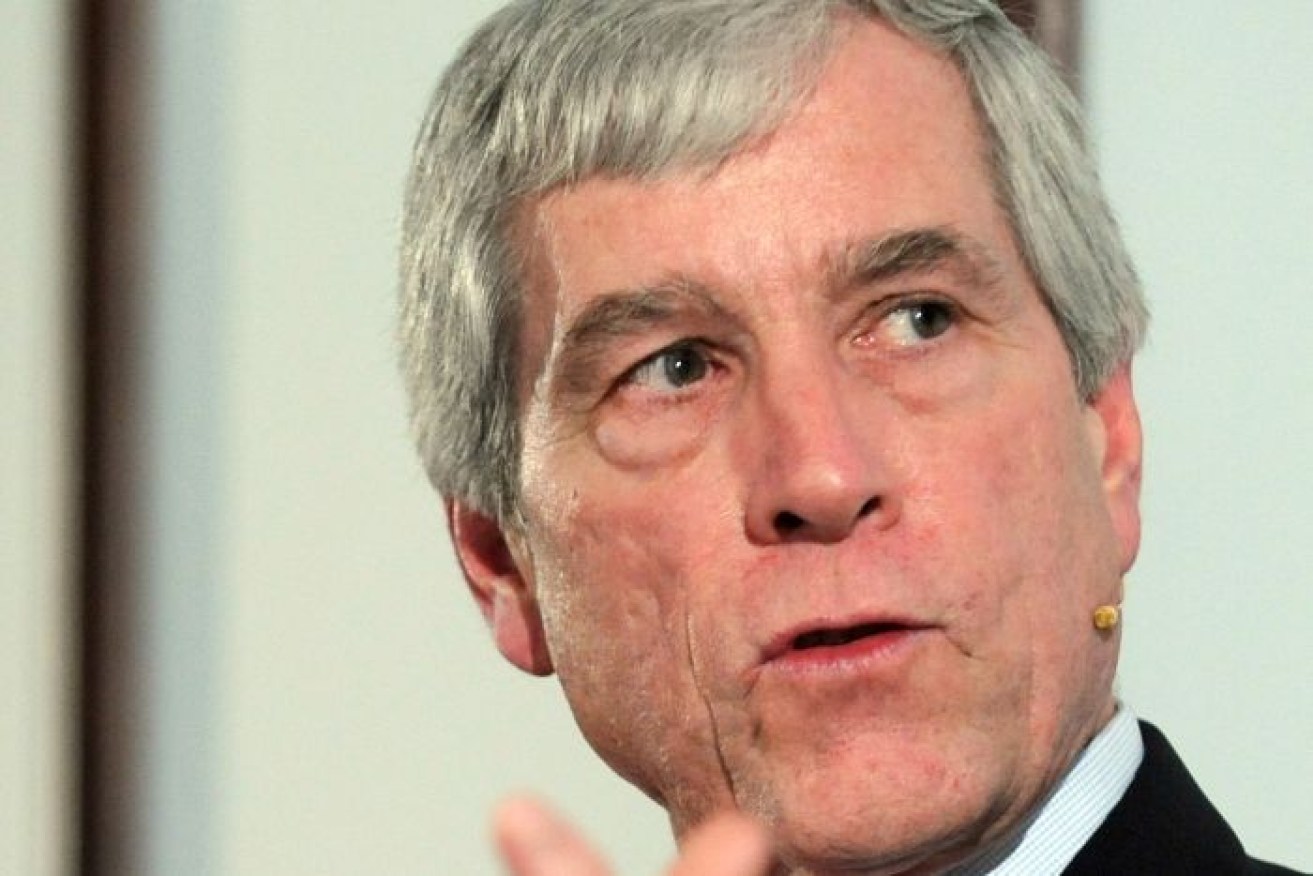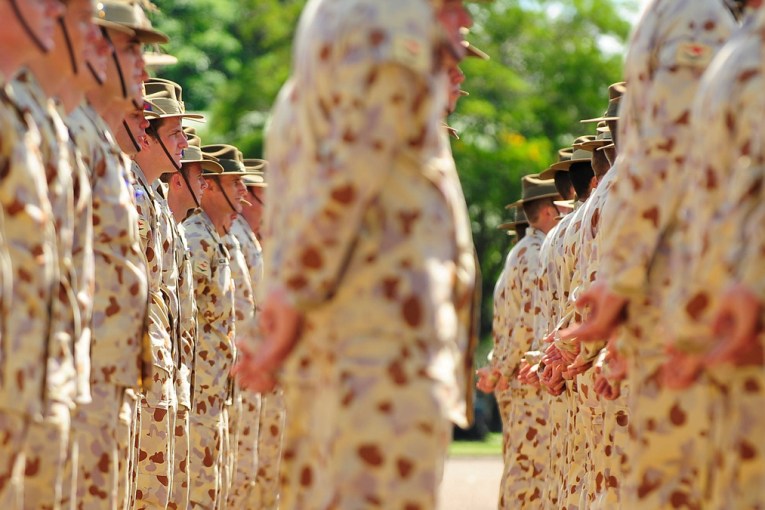Spy chief Nick Warner on the security threats facing Australia, from terrorism to North Korea

Nick Warner says there's a 'delicate balance' between civil liberties and security. Photo: AAP
The list of security threats to Australia is “almost endless” and greater than ever before.
That’s the view of spy chief Nick Warner, who says a rapidly evolving security environment is creating a unique set of challenges.
“Australia is facing some of the most challenging strategic circumstances that it has for decades,” Mr Warner told RN’s Geraldine Doogue in a rare interview.
“The world is more complex and arguably more dangerous than it was.”
As director-general of the newly-established Office of National Intelligence (ONI), Mr Warner’s responsibilities include daily intelligence briefings to the prime minister.
He says he could list “90 or 100” current security risks.
Here are six of the biggest.
China-US competition
“China’s rise is vitally important to Australia’s economic prosperity,” Mr Warner says.
“Has been, is now, will be in future.”
But he warns intensified competition between China and the United States will impact Australia.

Three Australian warships were challenged by the People’s Liberation Army Navy in a ‘robust’ exchange in April last year. Photo: AAP
A myriad of tensions between the two superpowers, including territorial disputes over the South China Sea and the East China Sea, have long been identified as creating geopolitical risk.
“Under Xi Jinping, China has become increasingly confident and Xi is determined to deliver China’s ‘national rejuvenation’, he said, by 2049,” Mr Warner says.
“‘I think what we have to always bear in mind is that we have different political values.
“And if we as Australians are cognisant of that we can better manage the challenges that will inevitably occur in the bilateral relationship from time to time.”
Technological change
Mr Warner says accelerating technological change is “not only changing the business of intelligence; it’s changing the entire world”.
He identifies innovations in nanotechnology, quantum computing, synthetic biology, facial recognition and gait recognition as particularly significant.

Users of the iPhone X can unlock the handset using facial recognition. Photo: AAP
But, he says, more common technological changes like smartphones facilitating “the ability of people to move money around” also have a broader impact.
Mr Warner says the intelligence agency is watching technological change – on a global scale – very carefully.
“Its impact on the world on our strategic environment is profound now and will continue to be profound in the years and decades ahead,” he says.
Regional tensions
Regional tensions, particularly in the Indo-Pacific and South Pacific, are also on Mr Warner’s intelligence radar.
“The Indo-Pacific region has become the epicentre of intensifying great power competition,” he says.
“And again that’s primarily China and the United States moving around.”
Also of concern is long-standing tension between India and Pakistan that has recently flared.

Soldiers stand next to the wreckage of an Indian fighter jet shot down in Pakistan-controlled Kashmir near the Line of Control. Photo: Getty
“The terrorist attack that took place in Pulwama on February 14 saw a mobilisation of military forces in both countries,” Mr Warner says.
“That tension has receded, but it hasn’t gone away.”
And he says Australia’s South Pacific neighbour Papua New Guinea will have an increasing impact on Australia in the coming years.
He says PNG’s growing population is likely to grow to more than 20 million in “20 years plus”.
“Its issues and problems will impact more directly on Australia than they have at any time since independence in 1975,” he says.
North Korea

Leader Kim Jong-un with US President Donald Trump at their first summit last year. Photo: Getty
North Korea’s nuclear weapons program and international efforts towards its disarmament are also having ramifications.
Mr Warner says US President Donald Trump did the “right thing” in walking away from the summit with North Korean leader Kim Jong-un in Hanoi in February.
“Let’s face it, we’re a very long way now again from complete, verifiable and irreversible disarmament,” he says.
Threat to ‘rules-based order’
More generally, Mr Warner says rules-based international order is “under threat”.
Under a rules-based approach, member states of the United Nations are expected to engage in a way that adheres to international law, regional security arrangements and trade agreements.
Australia’s efforts to engage within this predominately liberal framework were strongly articulated in the 2017 foreign policy White Paper, particularly in relation to China.
But, Mr Warner explains, “the power of states rather than the rules that inform the behaviour of states is more important than it used to be”.
Terrorism

Iraqi border guard troops looking out across the border with Syria in April. Photo: NYT
Australia’s intelligence agencies see Australia continuing to face ongoing threats from terrorism – whether from “right-wing extremism” or “Islamist extremism”.
“It’s not just the tragedy of Christchurch,” Mr Warner explains.
“It’s what’s happening in north-east Syria after the taking of that last [Islamic State] stronghold in Baghouz.
“The camps that are housing the women and the children and the fighters who have fled from Baghouz are now enormous.
“They’re straining at the seams. The number of foreign fighters that are housed in those camps is a great concern to us.”
Mr Warner says there’s concern foreign fighters could “get back to Europe”, as well as Australia and South-East Asia.
Balancing threats with civil liberties
So what can Australia can do to best manage security concerns? And what does the ONI’s new mandate cover?
Mr Warner says the intelligence agency’s role isn’t to brief the government on the “worst case scenario” that could “needlessly” cause alarm.
“What we do is tell the government how we see the situation now and how we think it will develop,” he says.
He identifies ONI’s role in combating threats as twofold: successfully assessing security risks, as well as coordinating, integrating and evaluating Australia’s 10 intelligence agencies – which includes Australian Security Intelligence Organisation (ASIO) and the intelligence division of Home Affairs.
“Agencies see value in coordination,” he says.
“They see value in us helping them come up with a strategic workforce plan. They see value in us coming up with a joint capability plan and to build joint capability. All those things are happening now.”
ONI’s newly-established powers have previously come under scrutiny for potential risks to individual privacy.
The legislation establishing ONI states that it can collect, interpret and disseminate information “relating to matters of political, strategic or economic significance to Australia that is accessible to any section of the public”.
Mr Warner says he recognises “there’s a delicate balance between civil liberties and security”.
“Like any government agency, privacy rules up on our website [are] ticked off by the government,” Mr Warner says.
“And those rules make it very clear what we can access and what we can’t access and what we can do with what we can lawfully and rightfully access.
“The right way forward is to find the right balance between [security and civil liberties]. And that’s the job of government.”








